Everything You Need to Know
Welsh honey is a delicious and unique product that has been enjoyed for centuries. Made by determined bees that collect nectar from a variety of flowers and plants native to the Welsh hills and valleys, this honey has a distinct flavour and aroma that sets it apart from other types of honey. In this article, we will explore the world of Welsh honey, from the beekeeping practices used to produce it to the different types available on the market.
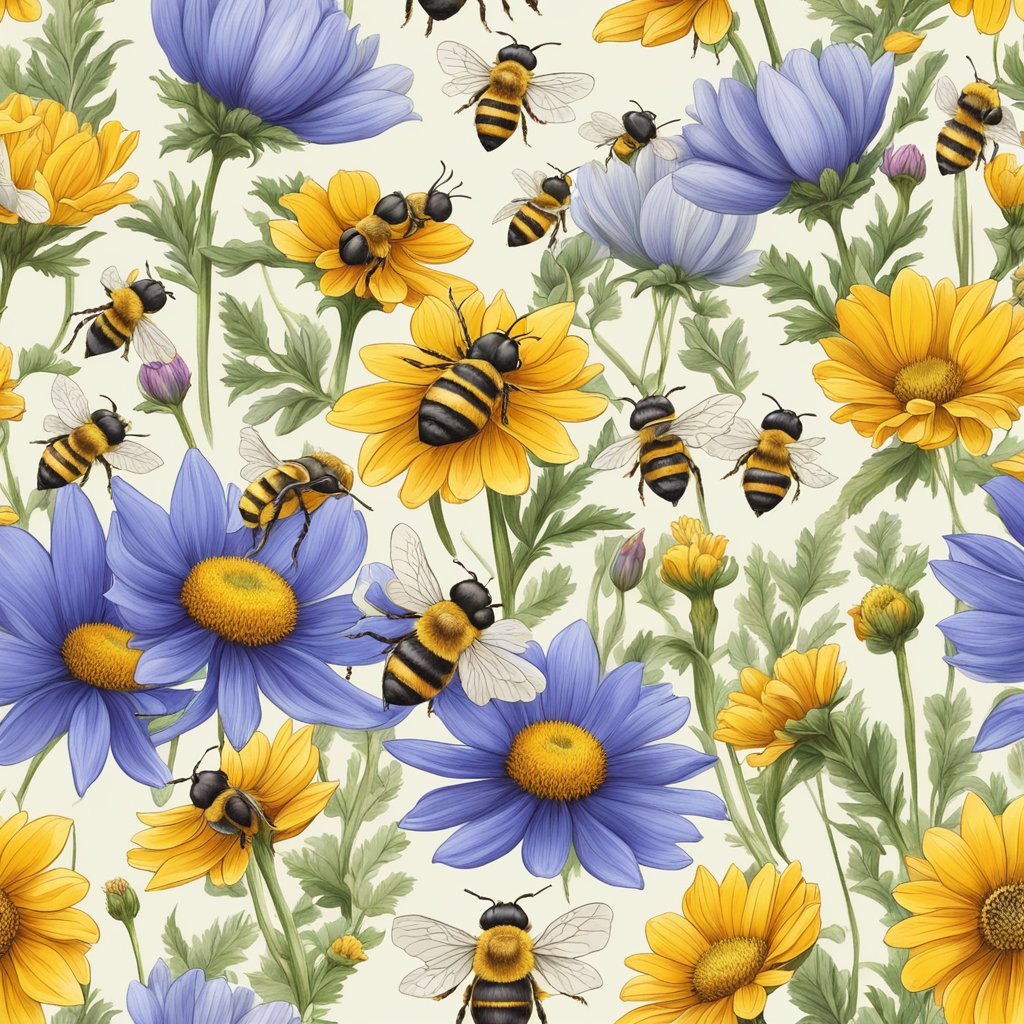
Beekeeping has a long tradition in Wales with evidence of beekeeping dating back to the Bronze Age. Today, at The Snowdonia Honey Co., we use modern techniques and sustainable practices to produce our high-quality honey. We will explain and take a closer look at our process of making Welsh honey, from the collection of nectar by our bees to the extraction and jarring of the final product.
There are many different types of Welsh honey available, each with its own unique flavour and colour. We will explore some of the most popular varieties, including Welsh Heather Honey and Welsh Wildflower Honey to name but two. Additionally, we will discuss the role of our apiaries in Snowdonia and the importance of our following a sustainable beekeeping practices.
The Beauty of Welsh Honey
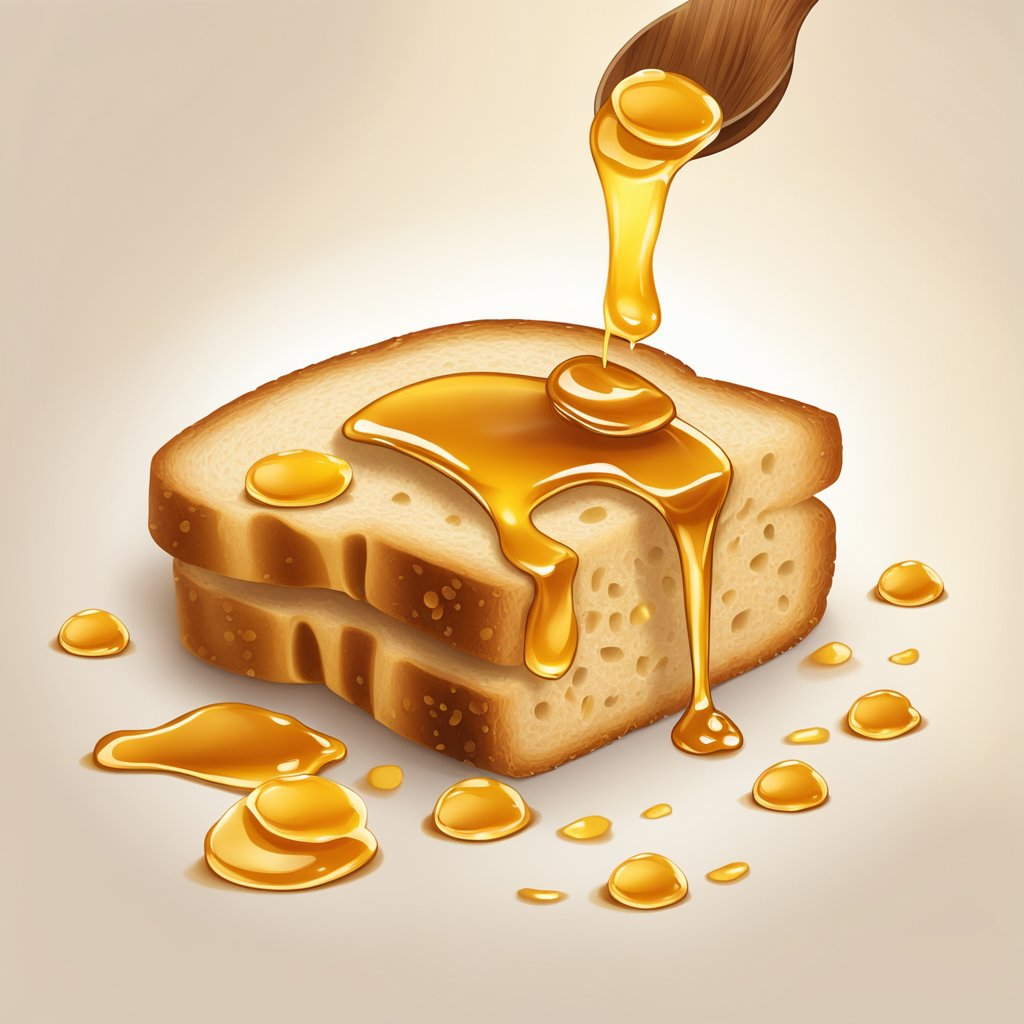
We cannot deny we're biased when we wax lyrical about the beautiful taste and textures of Welsh honey.
One of the remarkable things about The Snowdonia Honey Co.'s Welsh Wildflower Honey are the multiple Great Taste Awards it has won, a fine testament to its quality and taste. The award recognises the best food and drink products in the UK, and our Welsh Wildflower Honey has consistently been one of the winners.
The beauty of Welsh honey lies in its natural and raw form. It is not processed or refined which means that it retains all of its natural goodness. It is packed with vitamins, minerals, and antioxidants, which makes it a healthier alternative to refined sugar.
Moreover, Welsh honey comes in a variety of flavours, depending on the flowers that the bees collect nectar from. Each flavour has its own unique taste and aroma, which makes it perfect for adding to different recipes and dishes.
Understanding Beekeeping in Wales
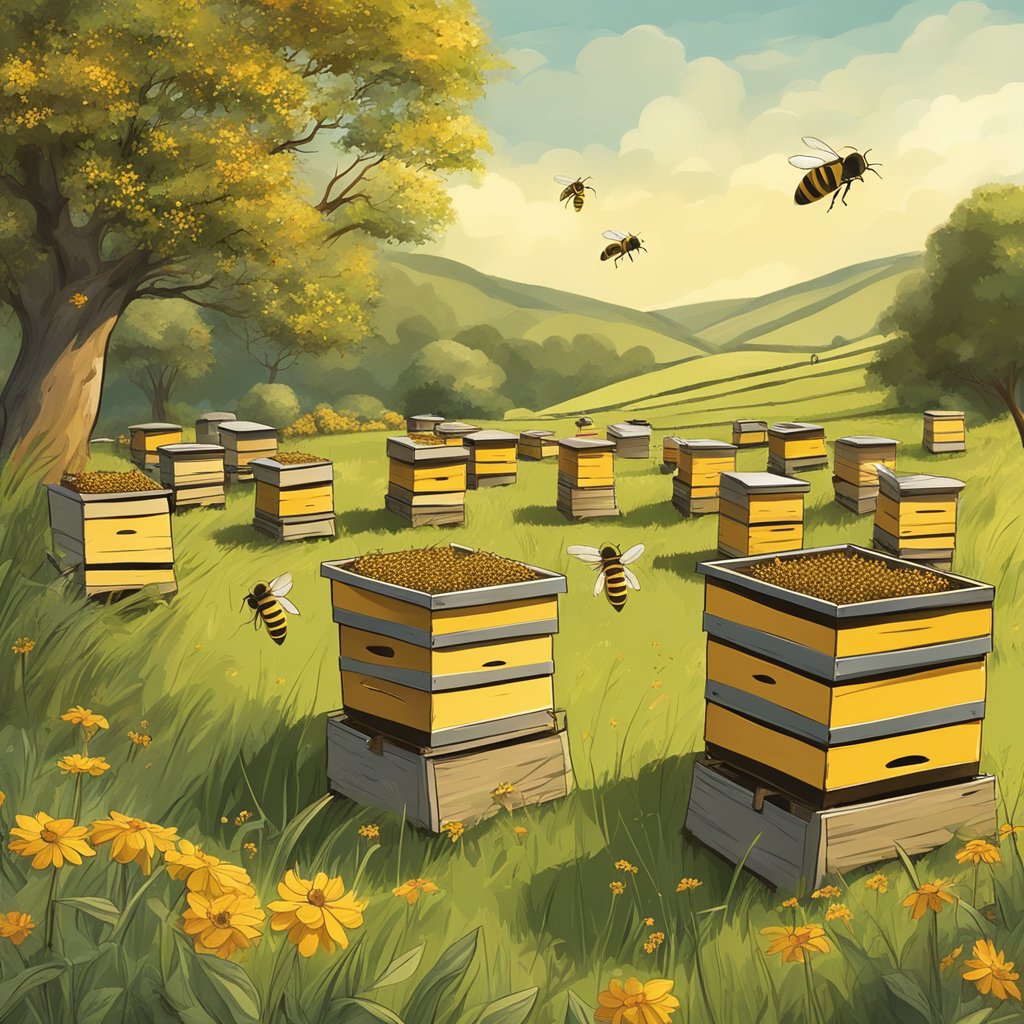
Beekeeping in Wales has a rich history that dates back centuries. It is an important industry that contributes to the economy and biodiversity of the region. In this section, we will explore the role of beekeepers in Wales and the welfare of our honey bees.
Role of Beekeepers
Beekeepers in Wales play a crucial role in the production of honey and the pollination of crops. They manage honey bee colonies, maintain hives, and harvest honey. Beekeepers also monitor the health of their bees and take measures to prevent diseases and pests from affecting their colonies.
In addition to producing honey, beekeepers in Wales also contribute to the local ecosystem by providing pollination services. Bees play a vital role in pollinating crops, which helps to ensure a healthy food supply and maintain biodiversity.
Welfare of Honey Bees
The welfare of honey bees is a top priority for The SNowdonia Honey Co. and every beekeeper in Wales. We take great care to ensure that our bees are healthy and well-resourced.
As beekeepers, we also take measures to protect our bees from predators and diseases. We use protective clothing when working with our hives and inspect colonies regularly to identify any potential problems.
The Process of Making Welsh Honey
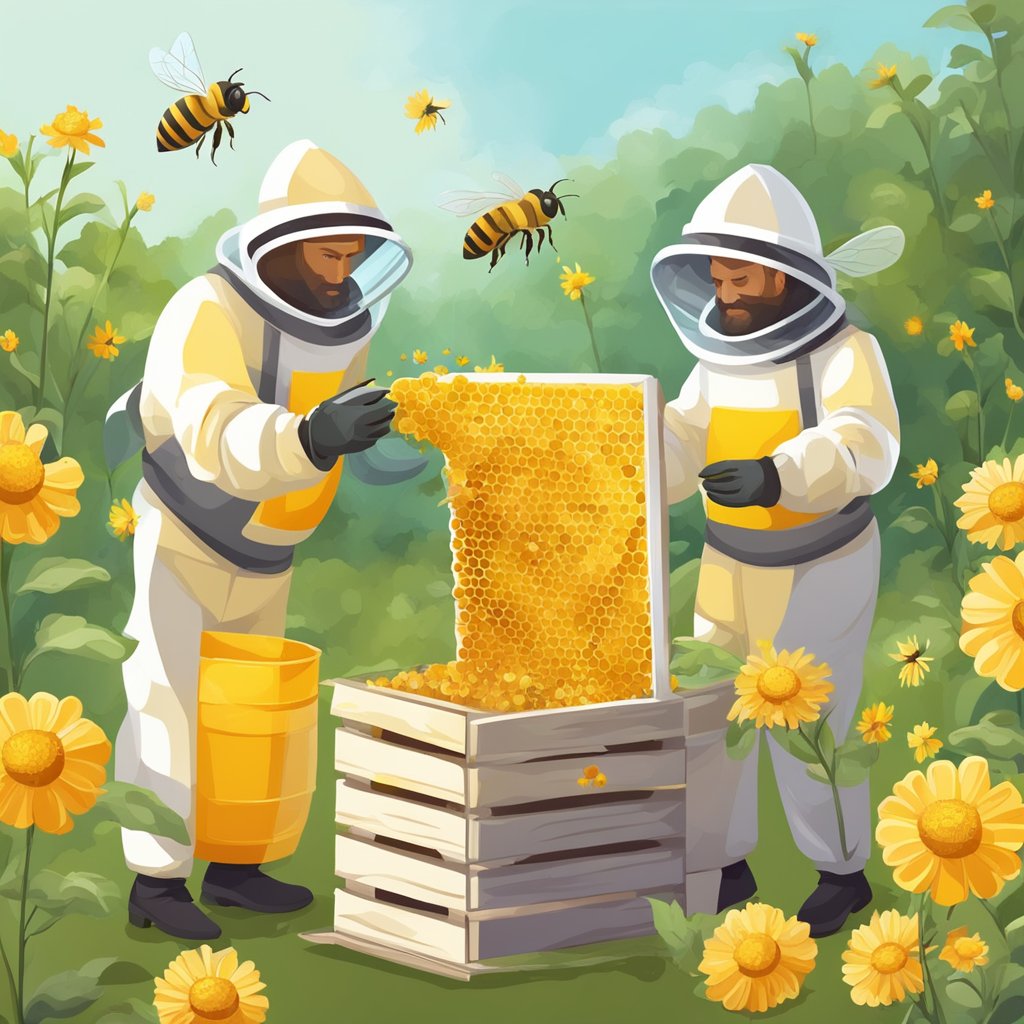
Making Welsh honey is a fascinating process that involves a lot of hard work and dedication from both the bees and the beekeeper.We take great pride in producing high-quality honey that is raw, unpasteurised, and tastes delicious!
The first step in the process is to select the right location for our beehives. We choose areas that are rich in nectar-producing flowers and away from any potential sources of contamination.
We carefully monitor the health of our bees throughout the season to ensure that they have enough food stores and conditions are right for them to thrive. We check our hives regularly (on a weekly basis between April and July) to make sure that the bees are not overcrowded (which could result in swarming) and that the queen is laying sufficient eggs.
When it's time to harvest the honey, we start by removing the bees and then the frames from the beehive "supers". These are smaller boxes (they get heavy when full of honey!) that we put on above the main hive to give a convenient place for the bees to store their excess honey. We then use a special tool to scrape off the wax caps that the bees have placed over the honeycomb cells. This exposes the honey, which we extract using a radial extractor back at The Snowdonia Honey Co. base.
Once extracted, the honey, is minimally filtered to remove any wax impurities and then after settling for a week, we jar the golden honey in our Honey House.
Overall, the process of making Welsh honey is a labour of love that requires a reasonable amount of skill and expertise by the beekeeper as well as the bees! We are proud to produce honey that is not only delicious but also healthy and nutritious.
Exploring Different Types of Welsh Honey
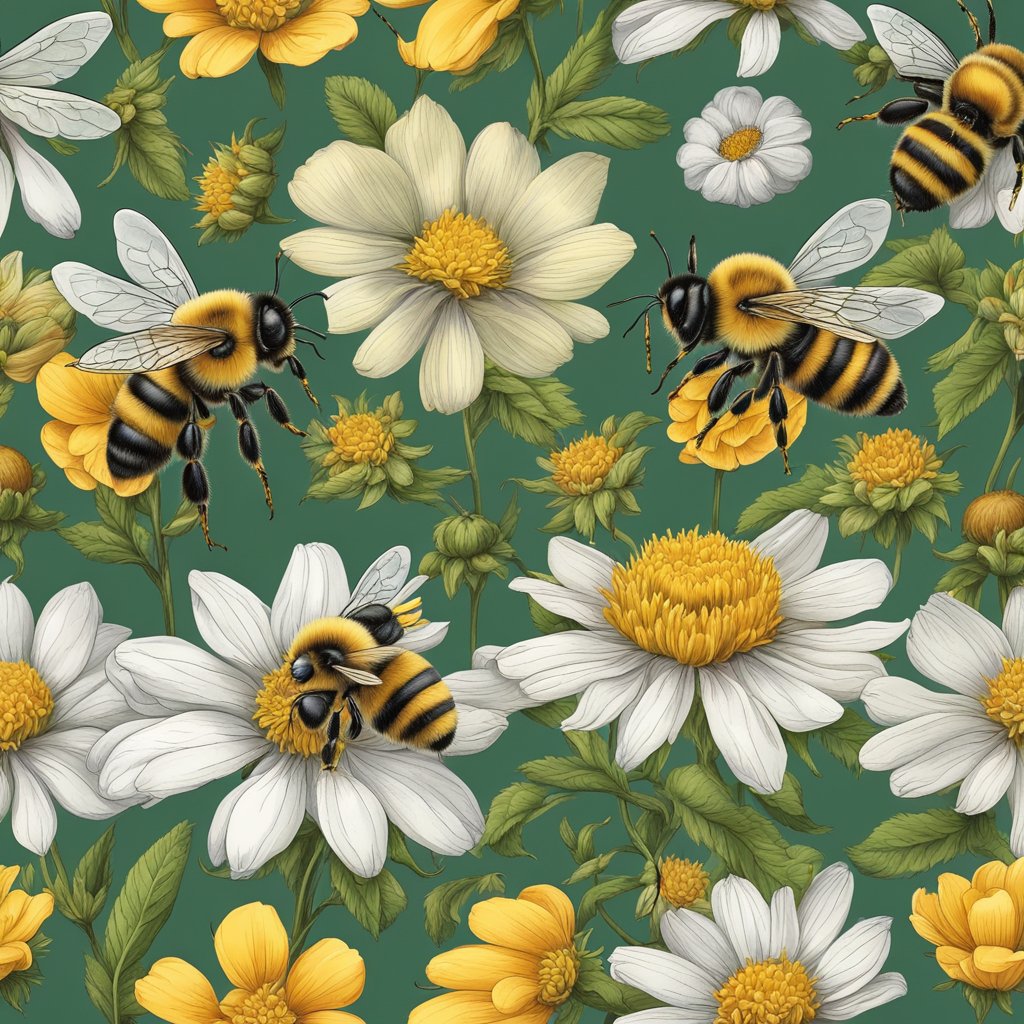
When it comes to Welsh honey, there are several types to choose from. Each type has its unique flavour and texture, making them perfect for different uses. Here are some of the most popular types of Welsh honey sold by ourselves
Welsh Heather Honey

This unique honey is produced in limited quantities and harvested only once a year. It is sourced from the Ling Heather that blooms on the slopes of Cefn Du in Snowdonia. Ling Heather Honey has a distinct flavour and aroma that is earthy and floral. It is perfect for spreading on toast or adding to tea.
Welsh Wildflower Honey

A Great Taste Awards winner (2 stars), Welsh Wildflower Honey from The Snowdonia Honey Co. is honey that has not been heated or pasteurised. It is often cloudy and contains particles of pollen. This raw honey has a strong, complex flavour and is perfect for cooking and baking. It is also believed to have several health benefits.
Welsh Spring Honey

Welsh Spring Honey is a dark and intense honey that captures the essence of Welsh Spring. It has a rich, bold flavour and is perfect for adding to marinades or sauces. It also pairs well with strong cheeses and meats.
Welsh Wildflower Soft Set Honey

Welsh Wildflower Soft Set Honey is a Great Taste Award-winning honey that has a sweet, multifloral taste. It is cold-extracted and unpasteurised, preserving its unique flavour and nutritional benefits but is churned in a special machine for a week to produce a buttery-smooth eating style that is perfect for spreading thickly on warm toast and crumpets.
The Role of Apiaries in Wales
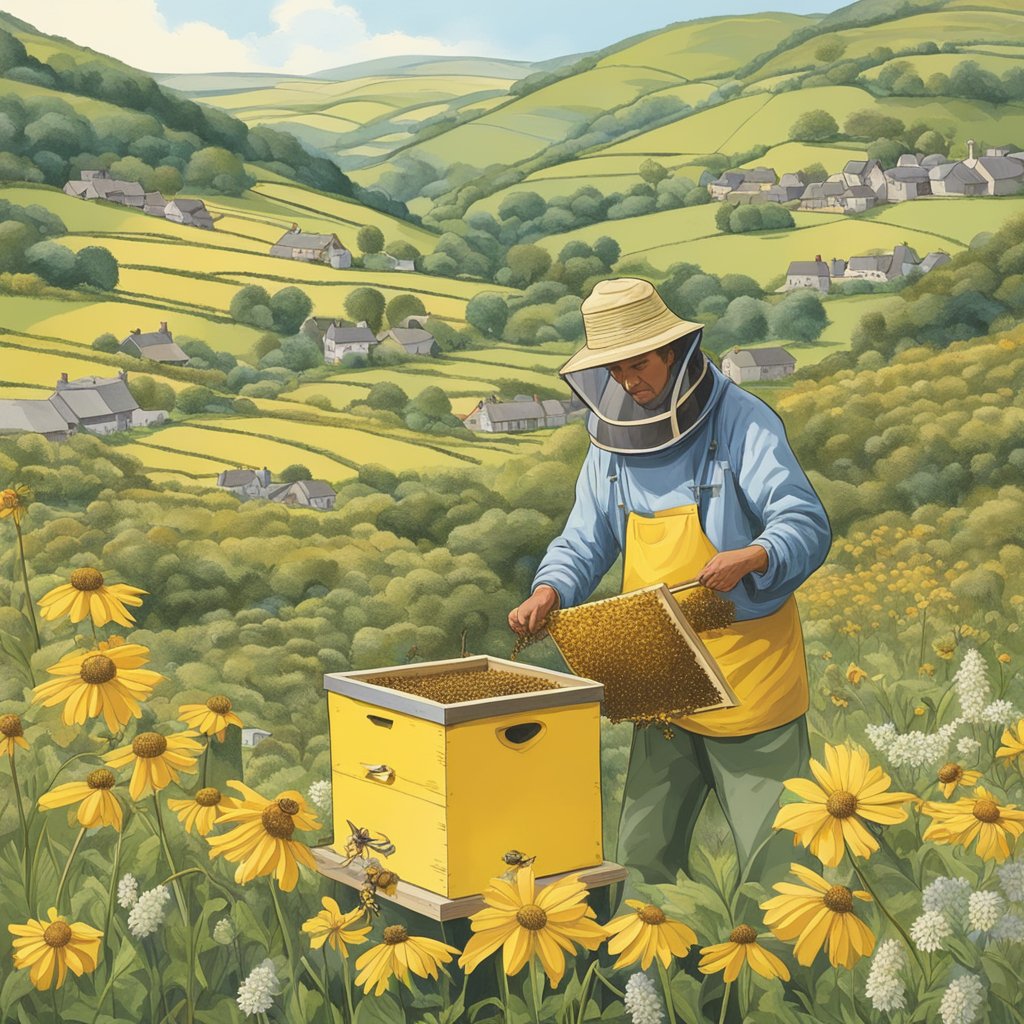
Apiaries play a vital role in the production of Welsh honey. As beekeepers, we understand the importance of maintaining a healthy and sustainable environment for our bees to thrive.
In Wales, apiaries are often located in rural areas, where there is an abundance of wildflowers and other plants that provide a source of nectar and pollen for the bees. This not only benefits the bees but also contributes to the local ecosystem by providing food for other pollinators and wildlife.
Beekeeping in Wales is also an important industry, with many small-scale beekeepers producing high-quality honey for local consumption and export. Apiaries provide a source of income for many farmers and rural communities, and the production of honey is an important part of Welsh heritage.
However, the role of apiaries in Wales goes beyond just honey production. Bees are essential pollinators for many crops, including fruits, vegetables, and nuts. Without bees, many of these crops would not be able to produce fruit or seeds, which would have a significant impact on our food supply.
At the same time, beekeeping in Wales is not without its challenges. The use of pesticides and other chemicals in agriculture can have a negative impact on bee populations, and the loss of natural habitats due to urbanisation and other factors can also affect bee health.
As beekeepers, we are committed to promoting sustainable beekeeping practices that protect the health of our bees and the environment. This includes using natural methods to control pests and diseases, planting bee-friendly flowers and plants, and working with local communities to raise awareness about the importance of bees and their role in the ecosystem.
Sustainable Beekeeping Practices
As beekeepers, we understand the importance of sustainable practices to preserve the environment and ensure the welfare of our bees. Here are some of the sustainable beekeeping practices we use to ensure the longevity of our hives and the health of our bees.
Use of Natural Materials
We strive to use natural materials in our hives, such as wooden frames, natural wax foundation, and organic treatments for pests and diseases. By avoiding synthetic materials, we reduce the impact of our beekeeping practices on the environment and ensure the health of our bees.
Hive Placement
We carefully choose the location of our hives to ensure that they are not placed in areas where they may cause harm to the environment or wildlife. We also ensure that our hives are placed in areas with sufficient forage for our bees, reducing the need for supplemental feeding.
Minimal Intervention
We believe in minimal intervention in our hives, allowing our bees to thrive naturally without unnecessary interference. By avoiding excessive manipulation, we reduce the stress on our bees and allow them to develop their natural defences against pests and diseases.
Integrated Pest Management
We use an integrated pest management approach to control pests and diseases in our hives. This approach involves a combination of natural and organic treatments, as well as careful monitoring and management of our hives to prevent infestations.
Sustainable Harvesting
We practice sustainable harvesting techniques to ensure that our bees have enough honey to sustain themselves throughout the year. We only harvest surplus honey, leaving enough for our bees to survive the winter months.
By following these sustainable beekeeping practices, we can ensure the health and welfare of our bees, while also preserving the environment for future generations.
Welsh Honey in the Market
When it comes to shopping for Welsh honey, there are a few things to keep in mind. Here, we will discuss the best places to buy Welsh honey and the companies that produce it.
Shopping for Welsh Honey
Welsh honey can be found in a variety of shops, from local farm shops to large supermarkets. It's important to look for honey that is labelled as being produced in Wales to ensure you are getting the real deal. Some shops may also sell honey that is blended with honey from other countries, so be sure to check the label carefully.
Farmers markets are also a great place to find Welsh honey. Here, you can often meet the beekeepers themselves and learn more about their honey and how it's produced. Plus, you can support local businesses and get a taste of the local culture.
Community and Events
As lovers of Welsh honey ourselves, we understand the importance of community and events in promoting and celebrating this delicious natural product. That's why we are always looking forward to events that bring together honey enthusiasts and producers from across Wales.
One such event is the annual Conwy Honey Fair which takes place in September each year. This show is an excellent opportunity for local beekeepers and honey producers to showcase their products and xchat with their customers. Visitors can also sample different types of honey and learn about the art of beekeeping.
Another event that we highly recommend is the Welsh Beekeepers' Association Annual Convention, which takes place in March. This convention brings together beekeepers from all over Wales to share knowledge and experiences, attend workshops and lectures, and browse the latest beekeeping equipment and supplies.
If you are looking to connect with other honey enthusiasts on a more regular basis, we recommend joining your local beekeeping association. These associations often hold meetings, workshops, and social events where you can meet fellow beekeepers, learn new skills, and share your experiences. At The Snowdonia Honey Co., we are proud members of the Conwy Beekeepers Association.
In addition to formal events and associations, there are also many informal ways to connect with the Welsh honey community. For example, you can join online forums and social media groups to share tips, ask questions, and connect with other honey enthusiasts.
Frequently Asked Questions
Q: What is so unique about raw Welsh Honey?
A: Raw Welsh Honey is a pure and natural product, made by bees from the diverse flora of Wales. With a richness and intensity unmatched by most honeys, it is highly prized for its wonderful taste, floral notes, and health benefits. More so, it is a great ingredient for various food items and drinks.
Q: Can I order a honey gift with Welsh Wildflower Honey?
A: Absolutely. We offer honey gifts which are the perfect gift for the honey connoisseur. Our Trio of Welsh Honey comes in four varieties and is often considered to be the "Greatest Hits" of The Snowdonia Honey Co. And if you can't mkae your mind up then give the gift of choice by selecting a Gift Card from The Snowdonia Honey Co. in numerous denominations from £10.
Q: What makes Heather Honey from Wales a Great Taste Award-winner?
A: Welsh Wildflower Honey from The Snowdonia Honey Co. has won the Great Taste Award because of its unique and intense flavour profile. It's harvested from native hedgerows and woodlands in the wild landscapes of Wales. This honey offers an extraordinary taste experience that the Great Taste Awards recognised with a 2-star award which means "Outstanding".
Q: How does the multi-jar discount scheme work?
A: The multi-jar discount is calculated based on the number of honey jars you order. For instance, the more jars you order, you can save even more. This also includes the 'mix-and-match honey flavours' scheme where you can choose different types of honey at discounted prices.
Q: Can I buy 100% pure honey from The Snowdonia Honey Co?
A: Yes, The Snowdonia Honey Co. offers 100% pure and raw Welsh honey, harvested straight from the hive. This multi-award-winning honey is available for sale on our online shop.
Q: What are the different flavours available for purchase?
A: We have a variety of flavours including Welsh Wildflower Honey, Welsh Ling Heather Honey, a Soft Set Welsh Wildflower Honey, a sublime Welsh Spring Honey and a Heather Blend Honey. These can be purchased individually or as part of a mix-and-match honey flavours scheme for multi-jar discounts.
Q: Do you offer Welsh Honey as gifts?
A: Yes, we offer Trio of Snowdonia Honey as the perfect gift for a honey lover. These gft boxes offer a variety of different honey types, carefully packaged in a beautiful box. You can simply order it online and send the gift straight to the recipient.
Q: What is the packaging like for Welsh Honey?
A: Our honey is packaged in glass jars to maintain its quality. We avoid using single-use plastics too. Each jar is carefully packed and sealed and has a final check by the Beekeeper at dispatch to ensure it reaches you in perfect condition.
Q: How can I use Welsh Honey as an ingredient in cooking?
A: Welsh Honey is a versatile ingredient that can be used in a range of dishes for its rich, sweet taste. It can be used in baking, to sweeten tea, in salad dressings, marinades or simply spread on toast. Its unique and intense taste enhances the flavour of your dish.